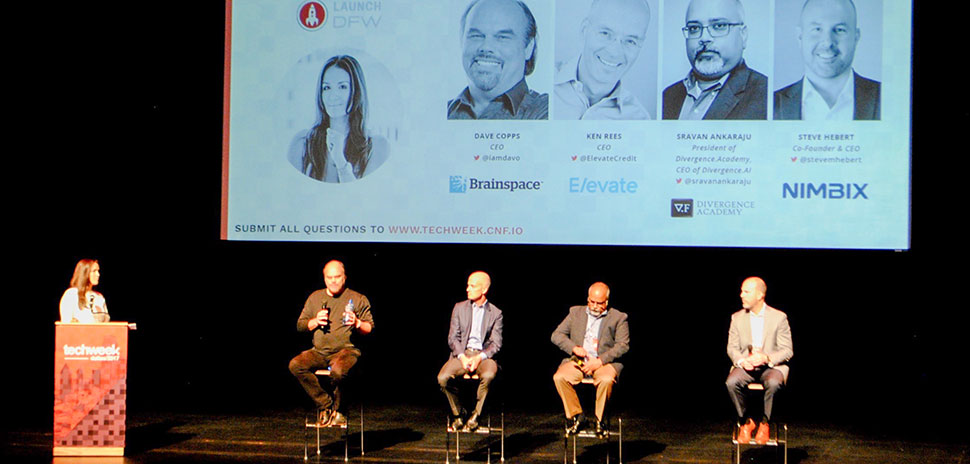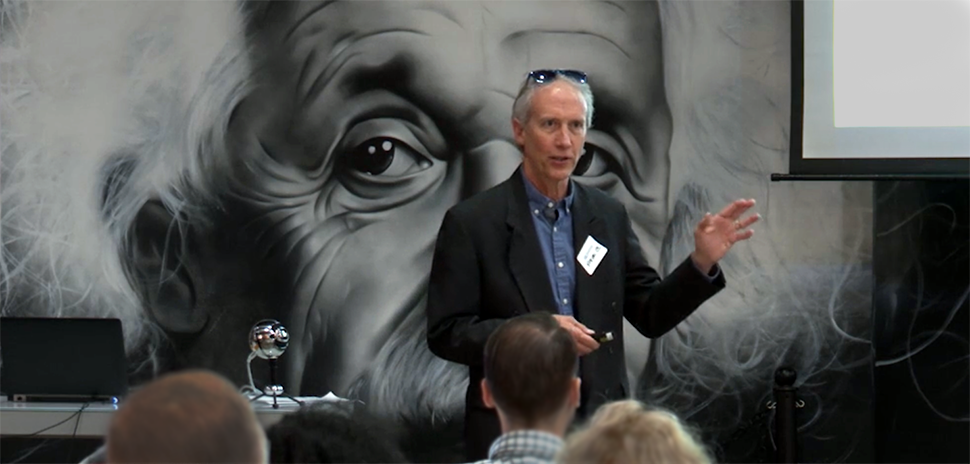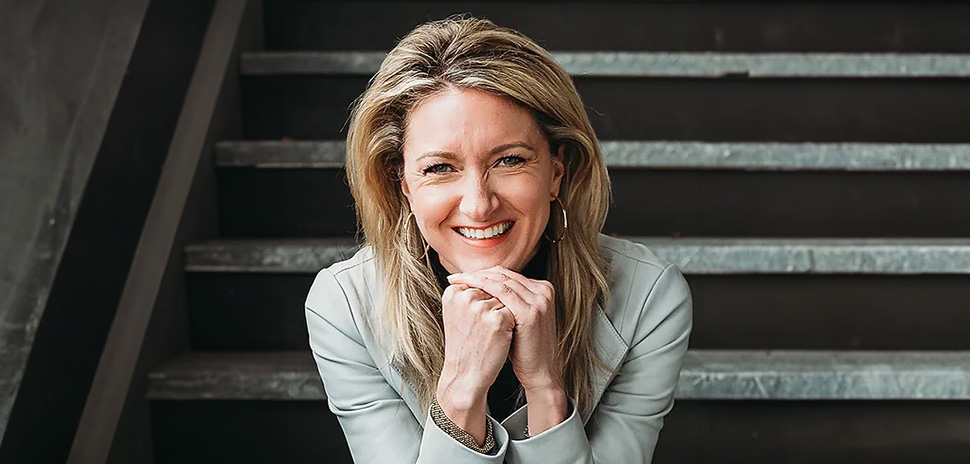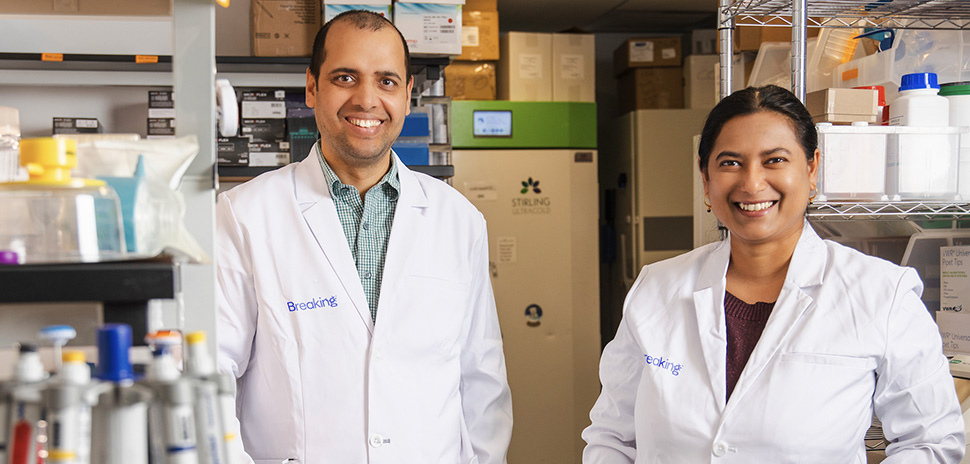Access to energy, especially oil, has been the biggest driver and measure of power for the last century.
For the future, countries with easy access to big data and the ability of artificial intelligence to make sense of it in nanoseconds will determine who is a world power, said Dave Copps, CEO of Brainspace.
AI has the power to predict wants, needs and behaviors of consumers and, in the case of cybersecurity or national security, possibly prevent crimes or even terrorist attacks from taking place.
“We’re entering a world of abundance. You’ve got advertising companies trying to learn more about you,” Copps said. “They’re able to predict what you want next. I’ve seen some spooky things happen to me online.”
Copps and other AI experts discussed the future of data intelligence to lead off the Growth Summit Thursday at the Moody Performance Hall in Dallas. The Techweek event included a day full of panels featuring business leaders from startups and large enterprises.
“Whoever owns the data and knows best what to do with it are going to be the winners.”
Dave Copps
Brainspace, an Addison-based AI and machine learning company, was purchased by two private equity firms for $2.8 billion last year.
When asked to define AI, Copps said it’s simply machines that learn things beyond their original programming and can replicate themselves and solve problems.
The big Silicon Valley companies such as Google, Facebook, and Amazon are leading the charge.
“It’s no accident that they’re building their own data centers,” Copps said. “Whoever owns the data and knows best what to do with it are going to be the winners.”
Copps likened AI and data science to a fast-moving river. Companies that refuse to use AI are like boulders in the river. Water will find a way around it and that company will be left behind, he said.
“There’s not a business in the world that shouldn’t be doing all those things,” Copps said.
For example, warehouses used to be the least high-tech places in the world. Amazon changed all that with its robotic fulfillment centers.
There’s also sensory overload that humans can’t handle, but AI can.
Distractions are a major problem for today’s businesses because text messages, email, news alerts, and other notifications bombard people all day.
“Distraction is the norm,” Copps said. “I think part of the challenge is to learn to turn things off. Take away the noise so you can focus on things that matter. Persistent learning is the key to everything.”
Steve Hebert, CEO of Nimbix, a Richardson-based supercomputing platform company, specifically carves out “deep work hours.” During those two hours, employees are encouraged to work on the hardest problem they can find with no interruptions from mobile devices.
“We also built in time for education and ongoing learning,” Hebert said.
HOW CAN LARGE CORPORATIONS KEEP UP WITH STARTUPS?
There’s a reason corporations don’t innovate on the same pace as a startup. There’s shareholders, bureaucracy, and convention that has to be overcome, not to mention the fact that radical changes could have a negative effect on an existing part of the business.
Hence why so many bright minds bail to become entrepreneurs of their own companies.
Capital One’s The Garage at its Plano campus flies in the face of convention because it encourages employees to use technology in new ways.
“I think innovation is finding new solutions to longstanding customer problems,” said Karen Stroup, senior vice president of Capital One and head of The Garage. “I love innovation and I love the art of creation.”
Stroup and other panelists shared the ways they’ve been able to push innovations through at their companies.
“I think innovation is finding new solutions to longstanding customer problems.”
Karen Stroup
First, when it comes to good ideas, hierarchy shouldn’t matter, Stroup said.
“Whichever idea is best wins,” she said. “The innovative process is collaborative.”
Also, don’t be afraid of radical change.
While large companies have the customer base and compensation that startups only dream of, they often don’t have the culture willing to change to adapt.
“[For] most companies, the concept of a pivot doesn’t exist,” said John Samuel, senior vice president and senior technical advisor at Sabre.
Companies hurt their culture when employees create valid ideas but nothing is done about it.
“That’s a killer,” Samuel said.
HOW CAN STARTUPS AQUIRE CUSTOMERS?
Modern Message co-founder and CEO John Hinckley can usually seal the deal with an apartment complex in two to six months.
But some clients take years. The longest has taken four years.
“We’re still working on it,” Hinckley said. “I’m going after the big guys.”
The Dallas startup created a community rewards platform for apartment complexes where residents can request maintenance, pay rent, and earn rewards.
Securing deals with apartments is also challenging because their typically only willing to sign on between budget cycles.
“If you’re trying to get into a new market, find that person that knows everybody and get them on your team.”
John Hinckley
“You have to hit the right time,” Hinckley said. “If you’re trying to get into a new market, find that person that knows everybody and get them on your team. That’s going to make the fastest impact.”
Andres Fabris, founder and CEO of Traxo, which aggregates travel and booking data, has learned to match the engagement of the customer.
“If they move fast so do you,” he said.
Fabris remembers in the early days camping out in the lobby of expensive conventions that they couldn’t afford to attend. They’d try to stop that key executive to tell them about Traxo.
Now, the Dallas-based startup is looking to expand to Europe and boasts clients such as TripAdvisor, who led its last round of funding.
PHOTO GALLERY
Photos by Meredith Mills:
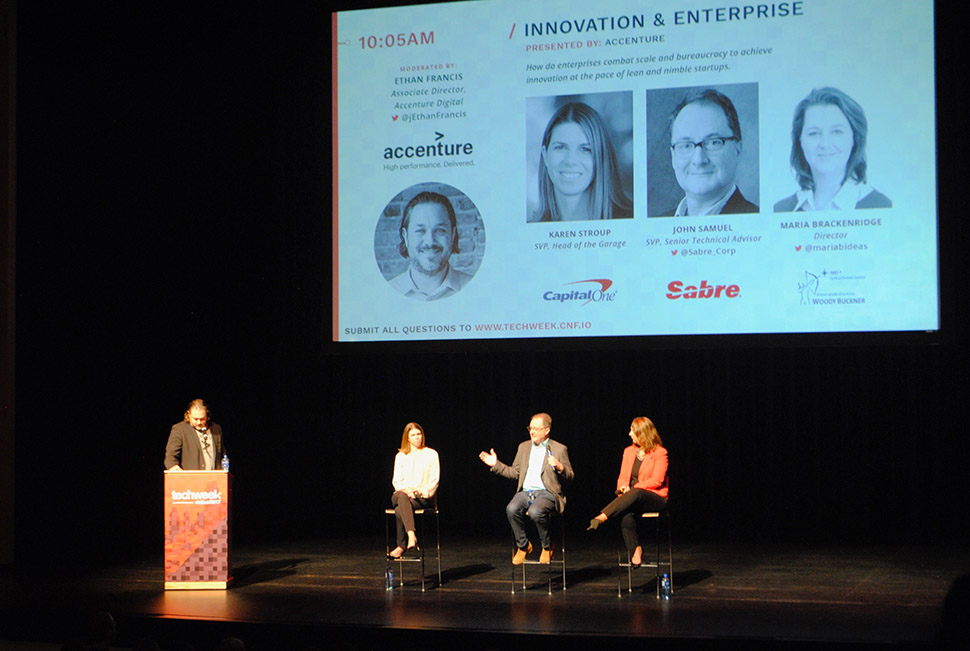
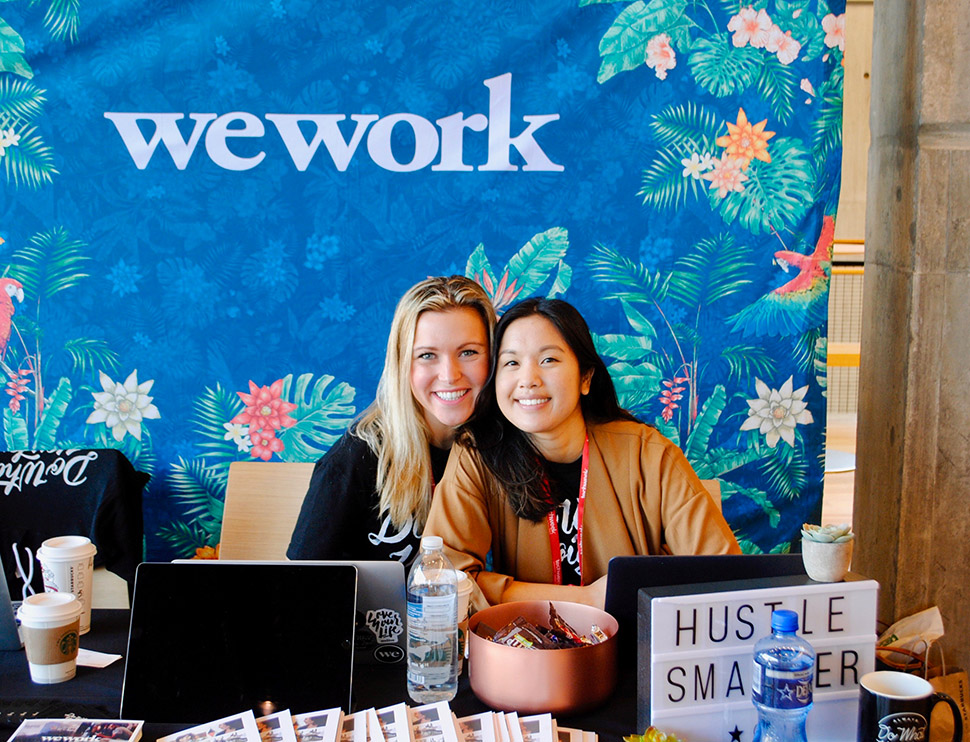
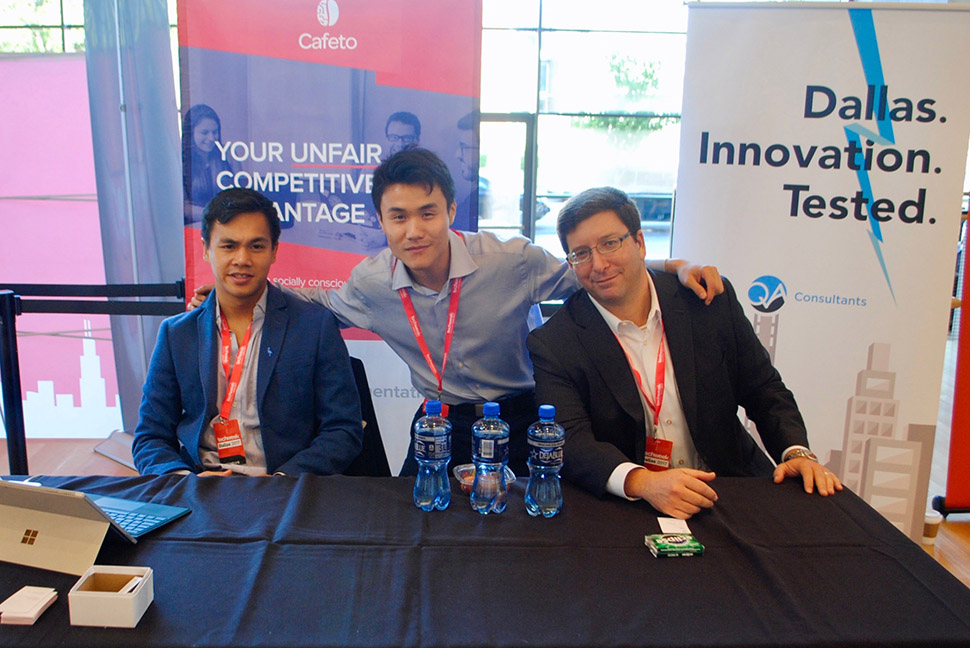
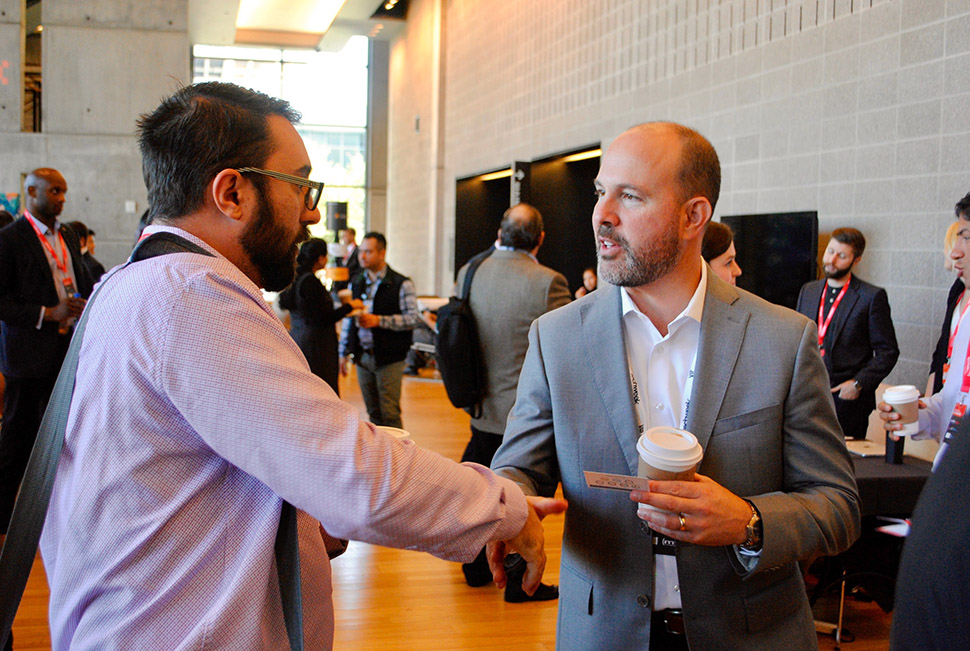
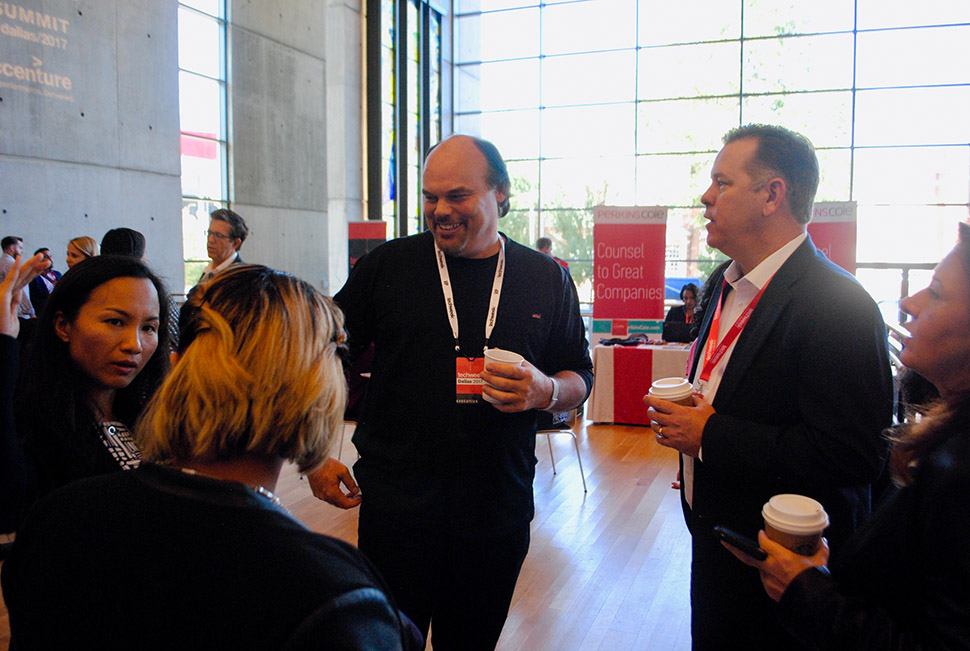
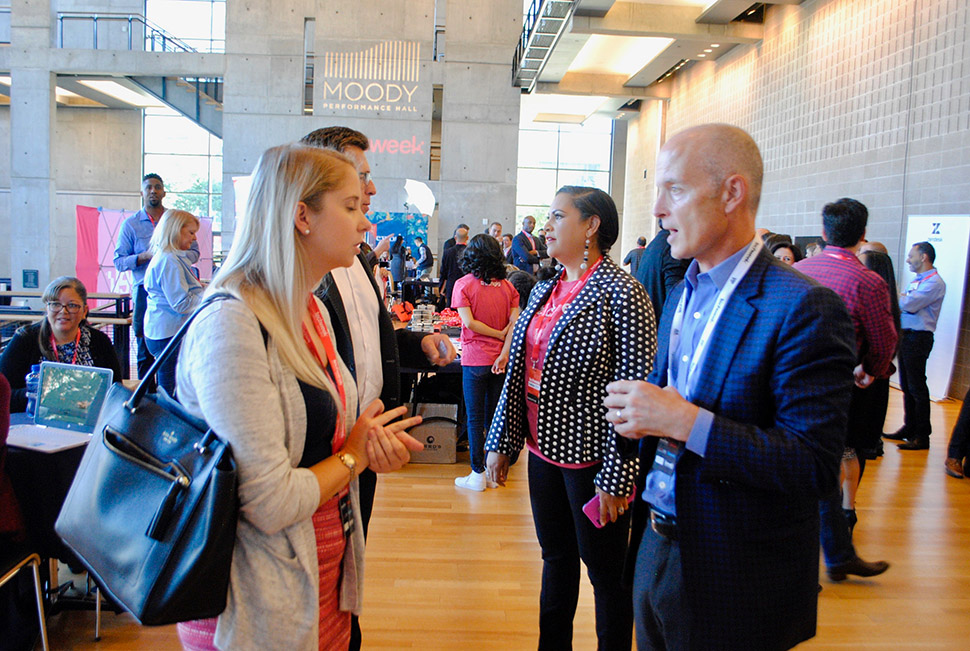
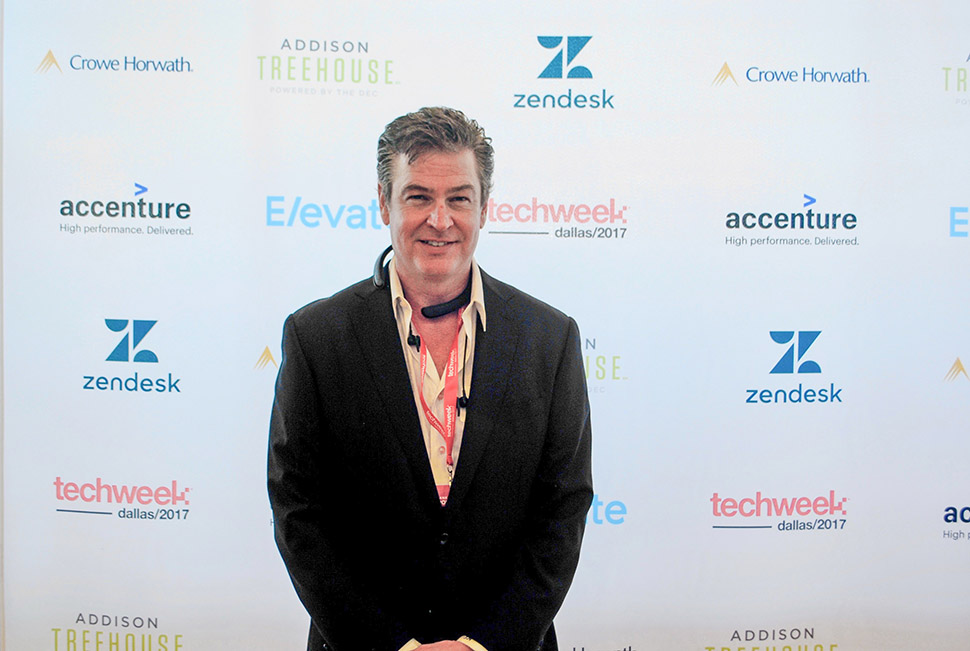
![]()
Get on the list.
Sign up to keep your eye on what’s new and next in Dallas-Fort Worth, every day.
And, you’ll be the first to get the digital edition of our new Dallas Innovates magazine:
The annual edition publishes in January










